If anyone is still reading these book posts, you are 1) my heroes, and 2) must be really bored. This is going to be my last look at some of the books I read last year, but unlike my previous posts of the subject, these books aren’t related to a single subject (like ancient history, comics, Turkish literature, or Central Asian history). The oldest book on today’s list is Michel de Montaigne’s essays, written in the late 16th century, but Robert Irwin wrote a biography of Ibn Khaldun who lived in the late 14th century, so that book reaches further back in time. The two novels on the list are 20th century classics that I had always meant to read. Sapiens and Empire of the Summer Moon are both history books. And Bluets a memoir of sorts. Here are a couple of brief thoughts about each volume.
The Complete Essays of Michel de Montaigne. De Montaigne had the kind of mind that makes you envious—curious about everything, eager to think about almost anything, and to tell us his thoughts. His approach when dealing with such subjects as “sleep”, “smells”, “drunkeness” was to describe them in any interesting way that he could think of. Sprinkled very liberally among Montaigne’s own observations are his quotations from classical antiquity. Montaigne has some thoughts, say, about “thumbs” he’d like to share, and here’s what Horace wrote about thumbs as well. When I first started reading this, I observed to a friend of mine that it resembled the Milinda Panha, an ancient Buddhist text which were a bunch of questions posed to a Buddhist monk written between 100 BCE and 200 CE. They struck me as similar in that they made arguments without ever referring to data, which struck me as a particularly premodern way to make an argument.
Bluets by Maggie Nelson. When I heard the title “Bluets”, I didn’t think of the flower, but instead was reminded of blueberries. (Interestingly, another name for the bluet flower is “Houstonia.”) Whenever I buy blueberries at the supermarket, I notice the package has the word “bluets” in addition to the word “blueberries.” This book is a meandering reflection on the color blue, both in terms of the hue and the emotion. Readers learn a lot about Nelson’s sex life, which is exciting. (Interestingly Bluets was recommended to me while on a date. Between our first and second date, I read it. Given the frank, first-person accounts of Nelson’s sex life, I hoped the recommendation was a subtle signal to me. It didn’t work out, but if any women out there are interested in bookish old guys, I am single.)
Their Eyes Were Watching God by Zora Neale Hurston. I knew that this novel was a classic from the Harlem Renaissance, but really knew nothing about it beyond that. It is set in Florida. Janie Crawford is a grand-daughter of slavery and rape. She suffers through a bad marriage, becomes a successful business owner in their small, all-black town, then remarries and moves to the Everglades. She must defend herself in court over a murder charge. Because it came from the Harlem Renaissance, I expected an urban novel (for no good reason, when I think about it). So I was a little surprised that it was mostly a novel of rural African American life. I was riveted by this book.
Terms of Endearment by Larry McMurtry. Larry McMurtry was born in rural Texas and is best known for various novels set in tiny towns in North Texas (Horseman, Pass By, The Last Picture Show) and novels set in the old west like Lonesome Dove. But starting around 1970, he commenced writing a series of novels set in contemporary Houston. The first was Moving On followed by All My Friends Are Going to Be Strangers, which I read in college (part of the novel was set at Rice University, where I was an undergrad). The next book in the series was Terms of Endearment, which was made into a very successful movie. The novel follows an eccentric widow named Aurora, her complicated relationship with her daughter Emma, and her series of equally eccentric suitors, including Vernon, a very odd oil millionaire who basically lives in his car and who Aurora meets in a parking garage. Terms of Endearment almost makes me proud of Houston.
Ibn Khaldun: An Intellectual Biography by Robert Irwin. A detailed biography of the great 14th century historiographer and author of the Muqaddimah. Khaldun’s big idea about how nomadic peoples create civilizations lingers, but I was also interested in how Irwin reminds us that however modern Ibn Khaldun’s idea of history may seem now, he was a medieval man. Irwin explains how Ibn Khladun’s belief in magic and sorcery affected his history-writing, for example. Also interesting was Ibn Khladun’s influence on Frank Herbert and Dune. Seems obvious when you think about it.
Empire of the Summer Moon: Quanah Parker and the Rise and Fall of the Comanches, the Most Powerful Indian Tribe in American History by S. C. Gwynne. There is a tendency to view the conquest of the Indians was about greedy, genocidal settlers massacring a bunch of defenceless, nature-loving hippies. But the various tribes of North America were very distinct from one another, and not every tribe was nice. Empire of the Summer Moon is a staggering read. Reading this made me think of the many steppe empires of ancient and medieval Asia (Scythians, Huns, Gokturks, Xiongnu, Mongols, etc.). They and the Comanches had similar cultures. But by the time Comanches and other Plains tribes got horses, it was too late. They got horses from the Spanish, so by the time the Comanches got them—turning them into unstoppable cavalry—horse warriors were already obsolete. The Spanish (and later the Americans) had guns, and the fate of all nomadic horse empires was to fall before gun-wielding empires. That is what happened in Asia after the rise of the so-called gunpowder empires—the Ottomans, Safavids and Mughals—and it was inevitable in the USA. Gwynne wants you to know about the prime movers of events, as well as providing a wide-angle view of events. The stories of Cynthia Parker and her son, Quanah Parker, last war chief of the Comanches, is beautifully, heartbreakingly told.
Sapiens: A Brief History of Humankind by Yuval Noah Harari. A really big picture view. Interesting is the “cognitive revolution”, where sapiens for some reason developed an ability to imagine unreal worlds (like a religious idea, or a organization that went beyond the immediate family or band—like a nation or a tribe). They were able to gossip, which apparently is a necessary skill for large tribes to form. Harari makes the point that the transformation from hunter-gatherer to farmer wasn’t necessarily a boon for humanity.
[Please consider supporting this publication by becoming a patron, and you can also support it by patronizing our online store. And one more way to support this work is to buy books through The Great God Pan is Dead’s bookstore. ]





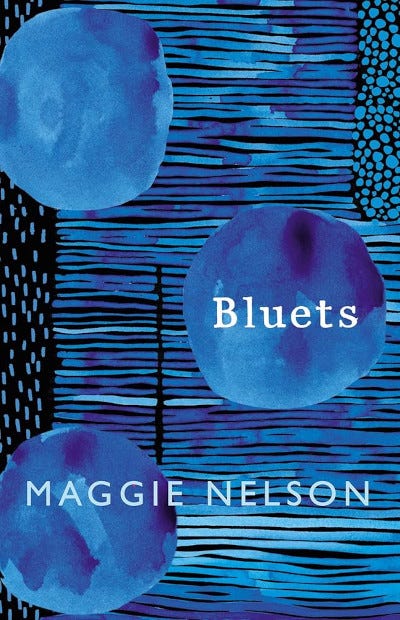
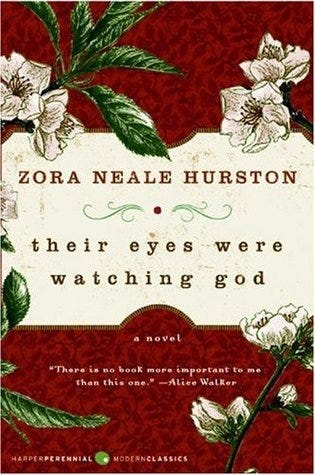
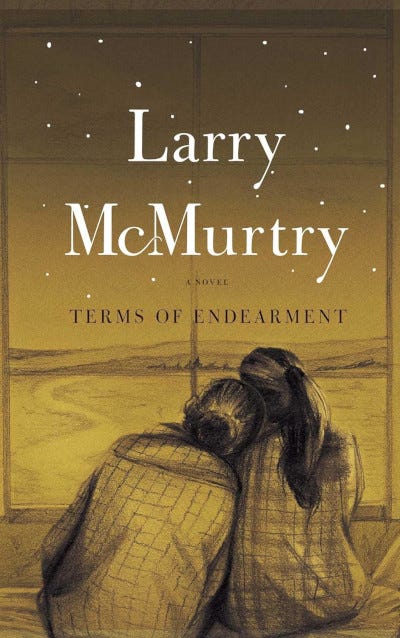

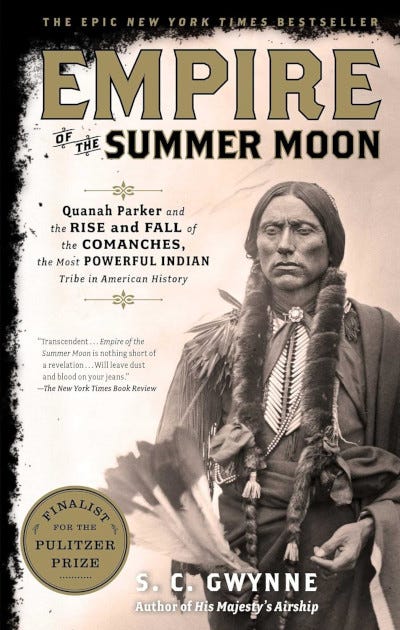
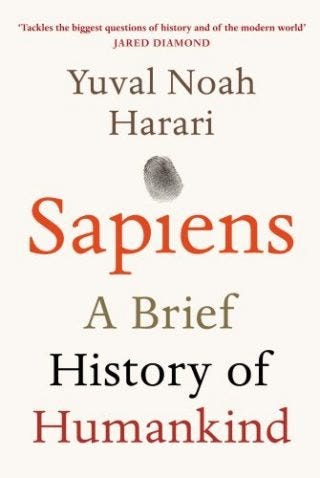
👍🏼
Montaigne also coined the term “essay.” Reading him makes you feel like you’ve made a friend.